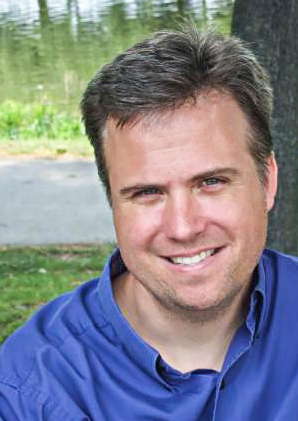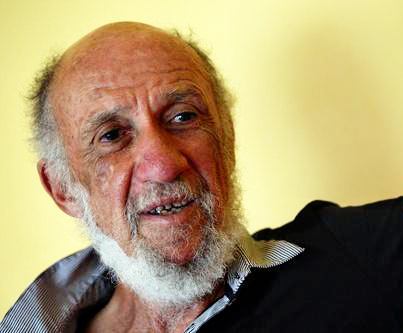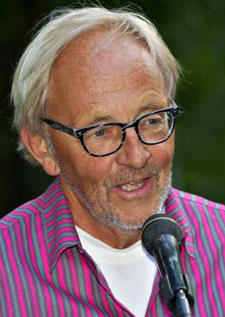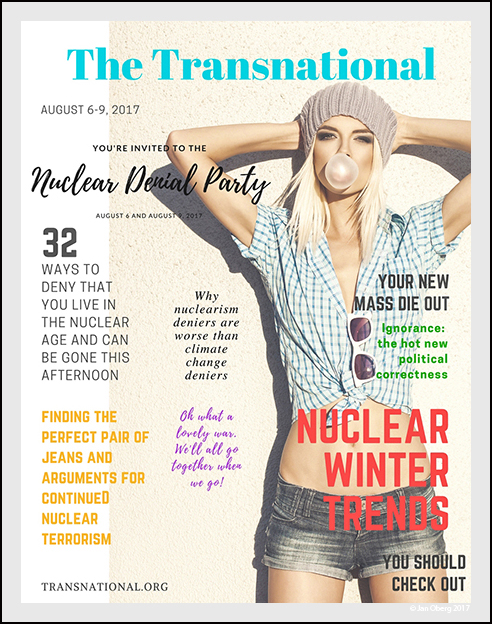Archive for August, 2017
David Swanson – CV
David Swanson became a TFF Associate in August 2017.
Here is everything about him from his very rich homepage DavidSwanson.org.
David Swanson’s main focus is to abolish war and create a world based on non-violence – about which you can read a wealth of materials at WorldBeyondWar.org
If you want to receive his newsletters and articles directly from himself, click here.
End of Nuclearism or the End of the World: Utopian Dreams, Dystopian Nightmares
By Richard Falk
We are living amid contradictions whether we like it or not, driving expectations about the future toward opposite extremes.
Increasingly plausible are fears that the ‘sixth extinction’ will encompass the human species, or at least, throw human society back to a technology of sticks and stones, with a habitat limited to caves and forests.
This dark vision is countered by gene-editing designer promises of virtual immortality and super-wise beings programming super-intelligent machines, enabling a life of leisure, luxury, and security for all.
Whether the reality of such a scientistic future would be also dark is a matter of conjecture, but from a survival perspective, it offers an optimistic scenario.
On political levels, a similar set of polar scenarios are gaining ground in the moral imagination, producing national leaders who seem comfortable embracing an apocalyptic telos without a second thought.
The peoples of the world, entrapped in a predatory phase of global capitalism, are using their democratic prerogative to shut down dissent, rationality, and science. Read the rest of this entry »
Living in Dystopian Times
By Richard Falk
Prefatory Note
The text below is drawn from a talk given at the Spring Festival of the Arts in Beirut, Lebanon on 15 June 2017. Comments welcome.
How can we understand the present unfolding world order, with special reference to its relevance for developments in the Middle East? In my view a fundamental reversal of political expectations has taken place that calls for a new assessment of what is going on, and where the region and the world seem to be heading.
Twenty-five years ago there were three widely held beliefs about future trends on a global level: the assured preeminence of the United States; the continuing globalization of the world economy; and the expanding democratization of national governance arrangements.
It was also assumed that these trends were more or less descriptive of regional realities, including the Middle East.
Each of these trends that seemed so descriptive 25 years ago now seems to be completely out of touch with what is happening around us that is very disappointing when compared with earlier expectations, no where more so than in the Middle East.
These disillusioning changes of perception are contributing to a growing anxiety about what the future portends for all of us.
In addition to these changes of expectation as to international behavioral patterns, there exist a cluster of deeper tensions that concern the very nature of the human condition, extending to challenges directed at the sustainability and quality of life on the planet.
One unfortunate consequence of the preoccupation with these disturbing recent international political realities is that much needed attention is diverted away from these more fundamental issues of an ecological, technological, and cultural character.
As an American, I am especially conscious of the enormous and costly diversionary impact that the Trump presidency is having in weakening the understanding and planning needed if humanity is to have any realistic chance of coping with these emerging threats of great magnitude that have never been confronted in the past.
The most serious menace posed by Donald Trump, who is most accurately regarded as the first right-wing populist tweeting demagogue of the digital age, is his extraordinary talent to shift the conversation from the awkwardly significant to the banal trivial.
He is exerting a great influence on public discourse not only in America but in the world, especially by diluting our perceptions of crucial issues affecting the human species as a whole, including climate change as connected to the related decline of biodiversity, automation, robotics, artificial intelligence, and the destabilizing effects of these technologies of the digital age especially when applied to security arrangements and the broad spectrum of societal policies bearing on individual and collective human wellbeing.
Under the weight of these threats it is not surprising that a dystopian moment is beginning to dominate the cultural imagination.
It discloses itself through a fascination with post-apocalyptic films and an interest in older literary dystopias such as Huxley’s Brave New World, Orwell’s 1984, and Margaret Atwood’s The Handmaiden’s Tale. These books that imagined a future that is in some respects our present are being widely read and discussed as if guidebooks to a set on conditions that were not anticipated.
Within the American political space the fragility of American democracy was prefigured in Sinclair Lewis’s It Can’t Happen Here as well in scary premonitions of the imminence of digital age fascism put forward in the recent radical feminist post-apocalyptic novel, The Book of Joan (2017) by Lidia Yuknavitch.
Also indicative of the foreboding quality of the prevailing Zeitgeist is a bestselling booklet that is a collection of identifying markers of tyranny by the prominent historian, Timothy Snyder, with a deliberately provocative title and a pedagogical rationale, On Tyranny: Twenty Lessons from the Twentieth Century (2017).
This ‘dystopian moment’ is reinforced by the absence of positive scenarios of the future, and the dismissal of the utopian imagination as worse than irrelevant because it allegedly created receptivity to promises that when translated into political reality produce totalitarian nightmares.
In effect, utopias, correctly understood, have themselves become in these dark times a disguised form of dystopia.
A recovery of societal confidence is a key precondition of envisioning a better future. Its loss is one dimension of the crisis confronting humanity at this time, and these days such failures of moral and political imagination are generally overlooked in the public sphere that is obsessively focused on the latest daily episode in the Trump political soap opera.
Naomi Klein reminds us in a recent interview, “Trump is not the crisis but the symptom of the crisis.” The point is that we must make the effort to grasp the social and political forces that gave rise to Trump and Trumpism. Klein also insisted that the negativity of progressive thinking in recent decades has had little political traction because it fails to present a positive alternative to the angry negativity of right-wing populism that targets the established order.
Klein’s new book has the title No Is Not Enough: Resisting Trump’s Shock Politics and Winning the World We Need.
Her text impressively couples a necessary critique of Trump’s pernicious leadership with an affirmative vision of how to move the political process in emancipatory directions. Read the rest of this entry »
Is there a way of reducing ethnic disputes?
By Jonathan Power
August 8th. 2017
It’s not that many years ago that Warren Christopher, the US Secretary of State, commenting on the outbreak of separatist ethnic strife in the 1990s in countries such as Somalia, Zaire, Rwanda, East Timor and ex-Yugoslavia, asked. “Where will it end? Will it end with 5,000 countries?”
It was a serious misjudgement. Separatist wars have fallen sharply. Minorities are not fighting for their own patch of territory at the rate they were. Since 1993 the number of wars of self-determination has been halved.
The list of countries where the problems of ethnic conflict looked potentially ominous but which are now vastly improved is a long one.
Baltic nationalists have moderated their treatment of their Russian minorities. Hungarians in Slovakia and Romania are no longer under threat. After a long war Croatia is respecting minorities.
Conflicts between the central government and India’s Mizo people, the Gaguaz minority in Moldova and the Chakma tribal group in Bangladesh’s Chittagong Hills have all diminished. One of Russia’s most important but least-noted achievements has been its peacefully-arrived-at power-sharing agreements with Tatarstan, Bashkiria and forty other regions.
A list almost as long can still be made for ethnic disputes unsolved.
But what we have learnt in the last few years is that the pool of ethnic conflicts is not infinite; that the ultra-pessimism of just a few years ago was misplaced; and that human beings can settle for less, as long as the dominant party recognizes the underdog’s integrity and gives it enough room for manoeuvre.
Nevertheless, there is no time for complacency as a new report by Britain’s Minority Rights Group makes clear. Read the rest of this entry »
Ukraine should become a buffer state
By Jonathan Power
August 1, 2017
Now a few recent words from Jack Matlock who was US ambassador to Moscow under presidents Reagan and Bush senior:
“The Ukraine crisis is a product, in large part, of the policy of indefinite expansion of Nato to the east. If there had been no possibility of Ukraine ever becoming part of Nato, and therefore Sevastopol (the ex-Soviet naval port in Crimea) becoming a Nato base Russia would not have invaded Crimea.”
He goes on to say: “Americans have lived for nearly two centuries with the Monroe Doctrine [which forbids non-Americans to seize land or intervene in Latin America]. Why don’t we understand that other countries are sensitive about military bases from potential rivals not only coming up to their borders, but taking land which historically they have considered theirs.
These are extremely emotional issues – issues that are made to order for any authoritarian leader that wants to strengthen his rule”. In a recent issue of Foreign Affairs, Alexander Lukin, vice-president of the Diplomatic Academy of the Russian Ministry of Foreign Affairs, adds a point: “It was only a matter of time before Russia finally reacted to Western encirclement”.
Matlock’s final point is that, “You have almost a clique in Washington that just can’t look at any atrocity in the world without wanting the US to get involved militarily.” [Despite Iraq and Libya which are falling to pieces, perhaps to be followed by Afghanistan.]
Matlock was the top Soviet expert in the Reagan Administration before he became ambassador. His great predecessor in this role, George Kennan, went to his grave warning that an expansion of Nato would be totally counterproductive. Read the rest of this entry »
UN Under Siege: Geopolitics in the Time of Trump
By Richard Falk
Why the peoples of the world need the UN: multilateralism, international law, human rights, and ecological sustainability
A Point of Departure
When Donald Trump withdrew American participation from the Paris Climate Change Agreement in early June of this year a bright red line was crossed. Most obviously, there were a series of adverse substantive consequences associated with weakening an agreement that was promising to provide critical interim protection against severe harms to human wellbeing and its natural habitat threatened by further global warning. U.S. withdrawal from Paris was also a rather vicious symbolic slap at multilateralism under UN auspices.
We should recall that the agreement was rightly hailed at the time as the greatest success ever achieved by way of a multilateral approach to international problem solving.
The Paris Agreement was indeed a remarkable achievement, inducing 195 governments representing virtually every sovereign state on the planet to sign up for compliance with a common agreed plan to address many of the challenges of climate change in the years ahead. To reach such an outcome also reflected a high degree of sensitivity to the varied circumstances of countries, rich and poor, developed and developing, vulnerable and less vulnerable.
The Paris withdrawal also exhibited in an extreme form the new nationalistic posture adopted by the United States in relation to the UN System, and a major retreat from the leadership role at the UN that the U.S. had assumed (for better and worse) ever since the Organization was established in 1945.
Instead of fulfilling this traditional role as the generally respected cheerleader and predominantly influential leader of most multilateral lawmaking undertakings at the UN and elsewhere the U.S. Government has instead apparently decided under Trump to become obstructer-in chief.
This Trump/US assault on the UN approach to cooperation among sovereign states and global problem solving and lawmaking is particularly troubling. This manifestation of the new American approach in the policy domain of climate change is particularly disturbing. Read the rest of this entry »
Hiroshimadagen 2017
Av Gunnar Westberg
Kärnvapenhotet ökar. I det läget blir det nyligen träffade avtalet som förbjuder kärnvapen ännu viktigare, menar Gunnar Westberg, Svenska Läkare mot Kärnvapen och TFF styrelsemedlem
Varför har det inte blivit något kärnvapenkrig sedan bomberna föll över Hiroshima och Nagasaki år 1945? Varför använde inte Sovjet atomvapen i Afghanistan, inte USA i Vietnam eller Irak? Jo, därför att alla inser att kärnvapen är en särskild klass av vapen, med alltför förfärande humanitära konsekvenser, som inte kan jämföras med några andra. ”Jag förlorar hellre kriget i Vietnam än tar till atomvapen” sade president Lyndon Johnson. Man menade under det kalla kriget att kärnvapen inte är till för att användas utan enbart för avskräckning.
”Vi har lärt oss leva med bomben och måste fortsätta med den”– det är en föreställning som har blivit en självklarhet för många, särskilt i kärnvapenstaterna. Dessvärre grundar sig denna uppfattning på okunnighet. Man är inte medveten om att världen under det kalla kriget vid flera tillfällen var nära ett globalt kärnvapenkrig som kunde ha ödelagt hela den mänskliga civilisationen.
Risken består även idag. Ett kärnvapenkrig kan startas av misstag och missförstånd, men också genom angrepp på internet av ”hackers”. Är vi säkra på att inte en desperat ledare kan komma att ”trycka på knappen”? Under Watergate-skandalen yrade en berusad president Nixon om att han hade den möjligheten. Så länge kärnvapnen finns kvar finns risken att de används.
Många anser att faran av ett kärnvapenkrig ökar för närvarande. Den ryske presidenten Vladimir Putin har vid flera tillfällen sagt att om Nato anfaller ryskt intresseområde skulle han överväga att använda ”några kärnvapen” som varning.
USA rustar upp sina kärnvapen i Europa. För närvarande är dessa flygplansburna vapen av typen ”fritt fallande bomber”. Nu moderniseras de emellertid till styrbara kärnvapenmissiler med god precision. De har enligt tillverkaren en förmåga att tränga ner i marken några meter innan de detonerar. Därigenom blir de effektiva mot ledningscentraler och missil-silos och får en uppgift vid ett ”lokalt kärnvapenkrig på den europeiska teatern”.
Det förefaller alltså som om USA/Nato och Ryssland nu är på väg tillbaka till sextiotalets kärnvapenstrategi: Kärnvapnen är inte längre enbart avskräckande, utan kärnvapnen kan användas som ett vapen bland andra.
Insikten om detta problem präglar den nyligen utgivna rapporten från Försvarets forskningsinstitut ”Kärnvapen för slagfältsbruk och europeisk säkerhet”. Där tar man det ryska kärnvapenhotet på stort allvar. Man vill att Sverige skall förbereda sig med ett ”försvar” mot ett kärnvapenanfall. Detta är, menar jag, inte möjligt.
Även ett litet antal ”små” taktiska kärnvapen, kanske lika ”små” som bomben mot Hiroshima, skulle åstadkomma en ofantlig skada. Skyddsrum mot kärnvapen är värdelösa mot atomvapen, detta lärde vi oss redan på sextiotalet. Att sprida ut det svenska militära försvaret inför ett eventuellt kärnvapenanfall är också meningslöst; då skulle en angripare bara öka antalet kärnvapen. Tillgången är obegränsad.
I detta läge är det nyligen – 7 juli i år – träffade FN-avtalet som förbjuder kärnvapen synnerligen viktigt. Read the rest of this entry »
TFF PressInfo # 422: You’re invited to the Nuclear Denial Party!
By Jan Oberg
Lund, Sweden – Hiroshima Day, August 6, 2017
Welcome to the Nuclear Denial Party!!
Since marketing, omitted and fake news have – to a worrying extent – replaced knowledge and ethics, why not celebrate that the media have omitted every mention of Hiroshima Day today?
Why not celebrate that all the responsible NATO countries and all other (less responsible) nuclear powers refuse to work for a nuclear ban and abolition as well as for general and complete disarmament?
Why not celebrate the decade-long self-deception that we can stop nuclear proliferation while being silent about nuclear possession?
Why not recognise with joy that there is an evil terrorism such as ISIS that we must fight and a good terrorism called ‘nuclear balance of terror’ that we must embrace – and that killing a few in the Middle East is much worse than planning to kill millions upon millions of innocent civilians worldwide and for a surely noble cause?
Why not laud the politico-media trick that the world’s attention is on non-nuclear Iran and not on nuclear Israel?
Why not appreciate the moral victory that we have – as civilisation – made slavery illegal, abolished absolute monarchy and put cannibalism behind us but – thank God! – haven’t given up the ultimate, death-and-destruction Omnicide weapons?
Why not feel good that Trump, Putin, Jinping, Macron, May etc. all play God and take the best care of the rest of us by deciding whether or not to continue project Humanity? They are all reliable, rational and moral leaders, so why not just be happy that we don’t have to worry!
Why not be grateful that there have been no more drunk commanders in nuclear facilities, panicking leaders, false nuclear warnings, technical failures, deficient floppy disk computers and no more nukes dropped inadvertently than we have heard of?
And why not, finally, see how fortunate it is that no referendum has ever been held by citizens in nuclear states. I mean, if the people had been allowed to say ‘No!’ we had hardly been so safe as we are today and instead had wasted trillions of dollars on making the world a better place for us all.
So, at the end of the day why should we not celebrate that – in spite of all this stupidity, immorality and nuclear dictatorship – 72 years into the Nuclear Age you and I are still alive?






